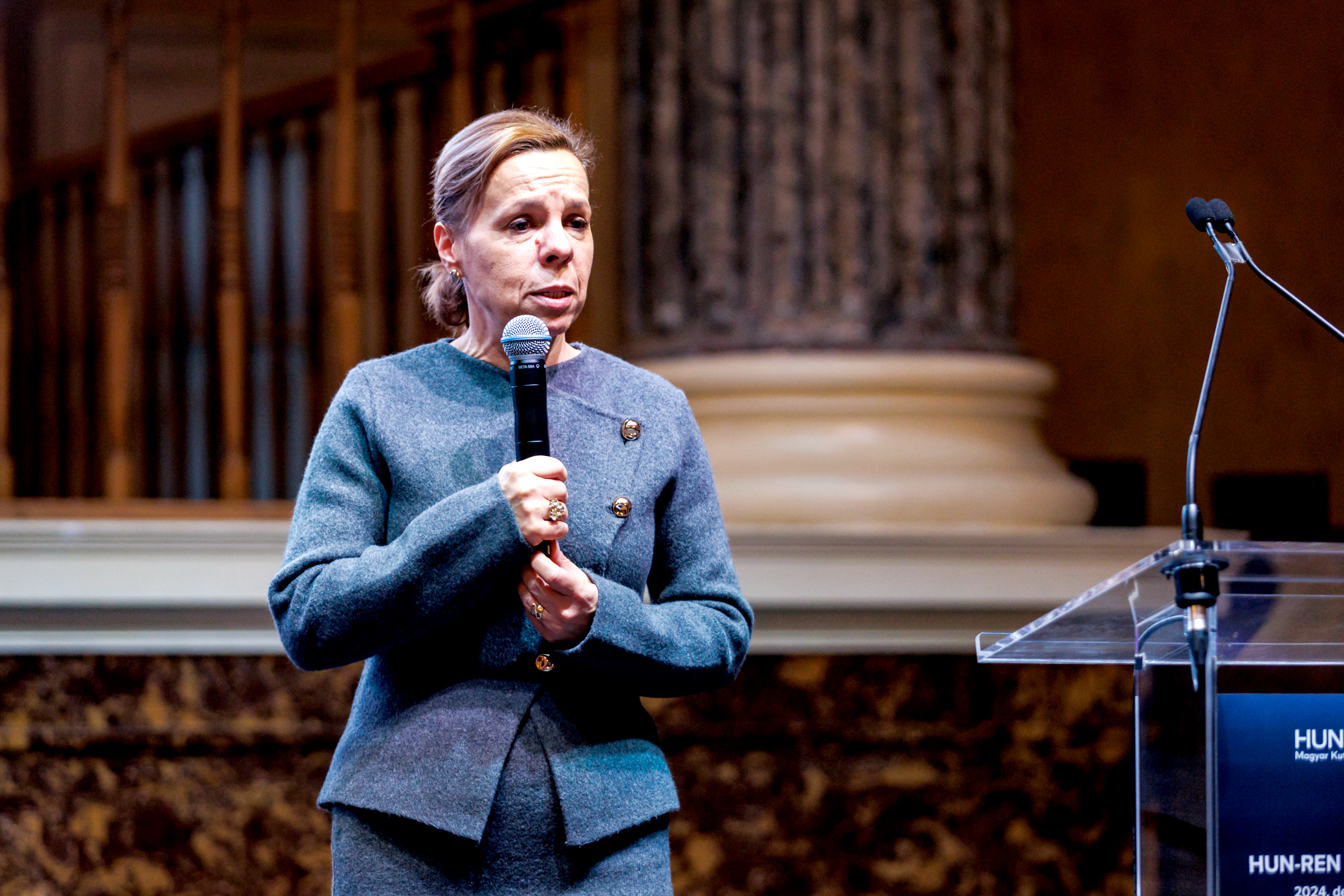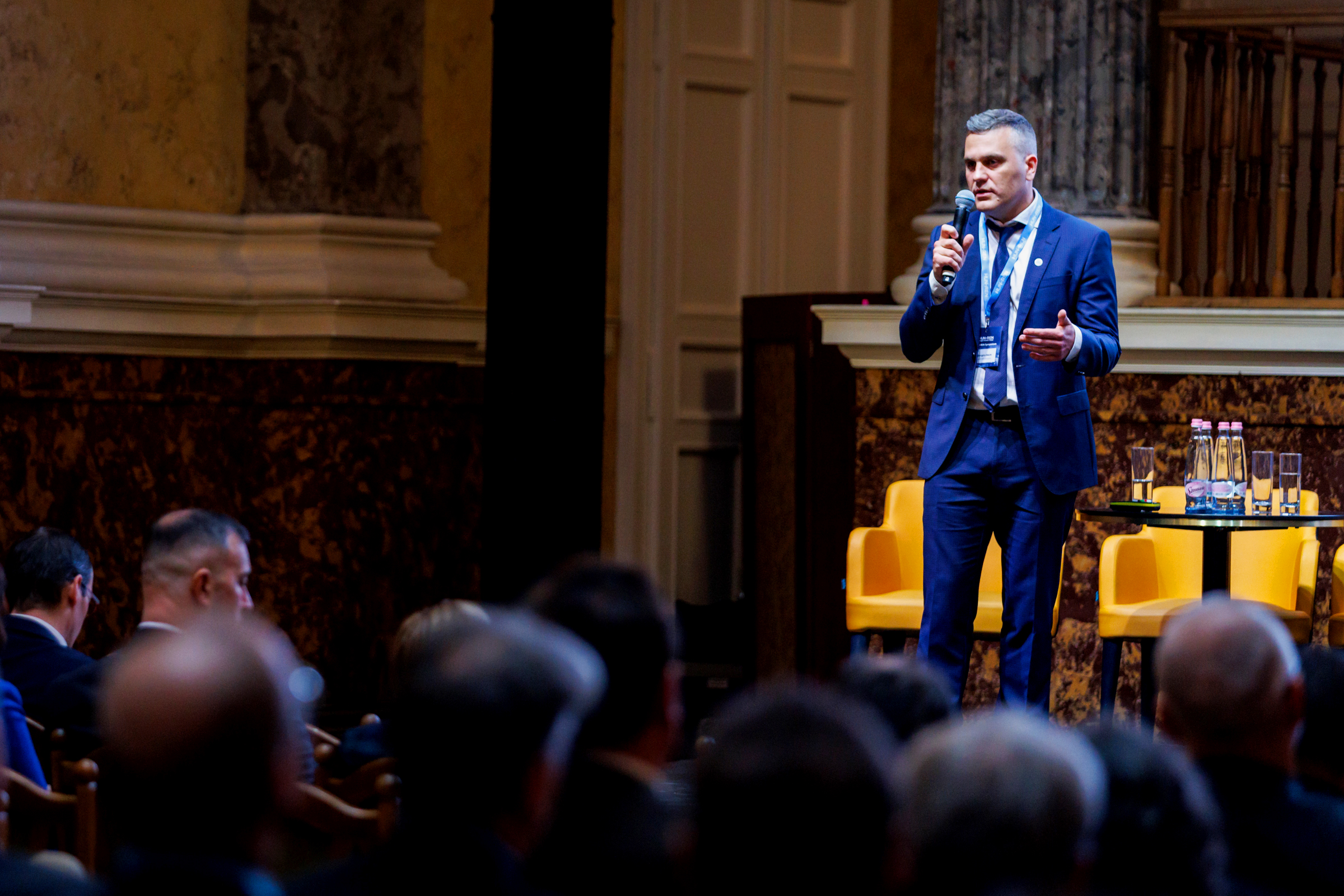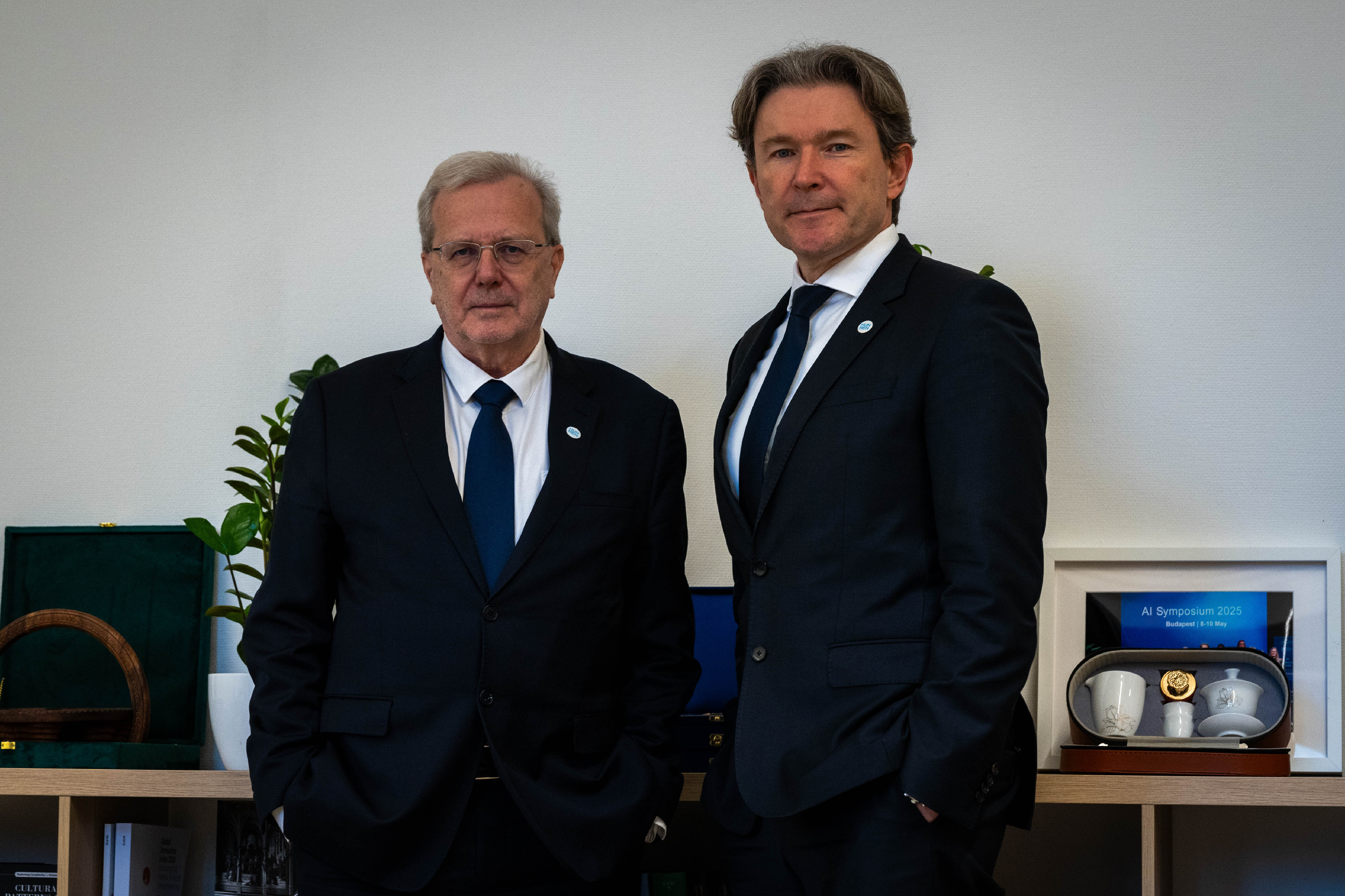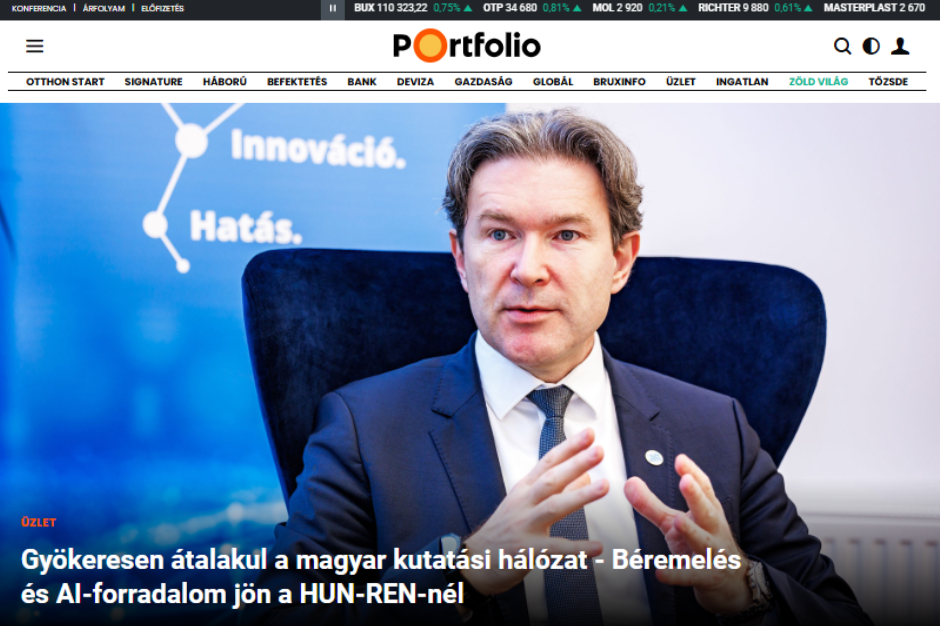"The Key to Success is Cooperation, Involvement, and Engagement in the Renewal Process"
At the event, Beáta Hoffer, Deputy CEO for Operations, and Márk Gergics, Head of the Transformation Programme Office, presented the principles and milestones of the research network’s renewal.
"With an energetic, experienced, and courageous team, we are preparing a large-scale transformation process to encompass and unify the entire network, engaging all levels of the organisation and ensuring a well-organised, structured, and transparent approach," emphasised Márk Gergics, Head of the Transformation Programme Office, during his presentation. He also acknowledged that HUN-REN is at the beginning of a challenging process that will inevitably involve conflicts.
Reflecting on expectations, Beáta Hoffer, Deputy CEO for Operations, encouraged the leaders in the audience to provide regular feedback and express their views. She acknowledged that the transformation would be a long and complex process but emphasised that "success can be achieved through thorough preparation and the constructive, united efforts of HUN-REN HQ and the research institutes."

The aim of the Transformation Programme is to achieve a comprehensive and profound renewal of HUN-REN, involving the entire network in the process and fostering a unified organisational culture. The goal is to create a positive and appealing impact that is sustainable in the long term. Throughout the transformation, particular emphasis will be placed on the coordinated and coherent implementation of efficiency measures, bridging gaps between institutions, and supporting the process with clear, comprehensible, and consistent communication.
In a joint presentation, the two senior colleagues stated that the transformation is currently in its planning phase. The draft law regulating the organisation and activities of HUN-REN is set to enter into force on 1 January 2025, provided it is adopted in December. The actual legal transformation will follow on 1 April 2025, marking the end of the operational stabilisation period. At this stage, the conceptual programme phase will begin, focusing on the development of operational principles and practices, a process anticipated to conclude by the end of next year. Operational excellence across the network is expected to be achieved by the end of 2027.

The presentation highlighted that the primary objective of the transformation is to enhance the network's effectiveness. Key elements of this effort include making research careers more attractive, ensuring competitive salaries, encouraging multidisciplinary research, expanding international collaborations, simplifying administrative processes, and promoting the use of AI. In this context, Beáta Hoffer emphasised: "The focus is on researchers and their support, as the scientific excellence of their work defines the network's effectiveness."
The success of the transformation is ensured by the wide range of sub-programmes, which cover all major operational areas and perform key tasks throughout the successful implementation of the transformation.
The transformation organisation was set up over eight weeks, and today more than 100 staff members from both HUN-REN HQ and the research sites are actively involved in the programme, with additional support from external experts. Of particular note is the role of quality assurance consultants, who validate the positions and outputs of the sub-programmes. The Programme Steering Committee is chaired by Balázs Gulyás, President of HUN-REN. Throughout the transformation process, as in the past, continuous communication and information exchange will remain a priority, delivered through newsletters, the soon-to-be-relaunched website, and personal consultations.
The speakers expressed their gratitude to the participants of the programme for their support and underlined that each HUN-REN staff member plays an important personal role in the renewal process: the keys to success are unity and commitment to common goals.
The Transformation Programme Office staff can be contacted at tpi@hun-ren.hu for any questions related to the programme and the reform process, and they will respond as quickly as possible.

